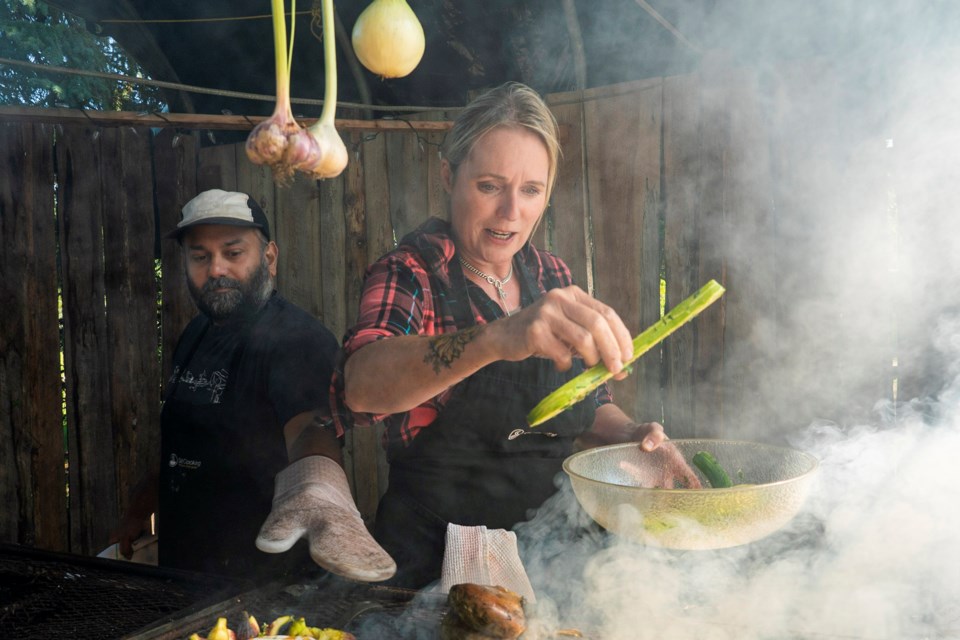Global heating means higher grocery bills and could overwhelm Alberta’s health-care system if left unchecked, says a University of Alberta professor.
Health Canada published the Health of Canadians in a Changing Climate report on Feb. 9. The 768-page report is the first comprehensive look at climate change and health in Canada since 2008 and was written by about 80 subject-matter experts from across the nation, including Sherilee Harper, the Canada Research Chair in climate change and health at the U of A.
The report found that global heating is already harming the health of Canadians, and more warming will worsen that harm.
“Projected increases in the frequency and severity of intense precipitation events, urban flood risk, droughts, extreme heat, wildfires, and storms will directly affect health by causing more illness, injures, and death without greater adaptation efforts,” the report found.
“Efforts to prepare for climate change are known to reduce risks and protect health. We must take action now.”
The report calls for increased efforts to reduce greenhouse-gas emissions and notes how Canada can reap considerable spin-off benefits in the process (thousands of avoided premature deaths from air pollution by mid-century, for example).
Too hot for dinner
Health impacts from climate change come mostly through extreme weather, the report found. More warming means more lightning, forest fires, and summers spent choking on smoke, for example, and more death from extreme heat — the report noted how one severe heat event in B.C. last year killed 740 people.
But it also affects our health through our food, explained Harper, lead author of the report’s chapter on food safety and security. Wildfires make B.C. grapes and wine scarce and more expensive, while higher temperatures help harmful bacteria flourish in B.C. oysters, making them more likely to cause severe illness. Higher atmospheric CO2 concentrations can cut zinc, iron, and protein levels in wheat, rice, and legumes by up to 15 per cent — deficiencies which could put hundreds of millions of people at risk of nutritional deficiencies.
The report noted how climate change is projected to boost Canadian food prices by three to five per cent in 2021, with global cereal prices set to rise one to 29 per cent by 2050 under one emissions scenario. Climate change will also reduce fruit and vegetable consumption in Canada by making them less available, resulting in 1,100 to 1,450 more deaths a year by 2050 (assuming a population of 44 million).
This is more than just a case of us missing products in stores, Harper said.
“It’s also a matter of life and death for some people.”
Tam Andersen of Prairie Gardens said extreme weather shifts have had a direct effect on the quality and quantity of crops she can sell. She had excellent carrots two years ago when there was record moisture, for example, but only half-sized ones last year due to a record heat and drought — heat that caused her pumpkins and wheat to thrive.
“It’s a really bizarre way to farm,” she said, given the huge swings in production.
Andersen said she has invested in grain dryers and storage and is looking into solar power and irrigation to adapt to climate impacts on food production. Customers have also started buying more fruit trees to start home gardens and signing up for community-supported agriculture programs to produce local food and guard against price spikes.
Harper said Canadians can improve food security under climate change by supporting local food production and revising food safety rules. While switching to a low-meat diet as recommended by the Canada Food Guide will reduce carbon emissions, she said it is more important for people to start lobbying politicians to act on climate change.
“If we continue on a really high emissions pathway, the health-care system will simply be overwhelmed.”
The report is available at changingclimate.ca/health-in-a-changing-climate.



